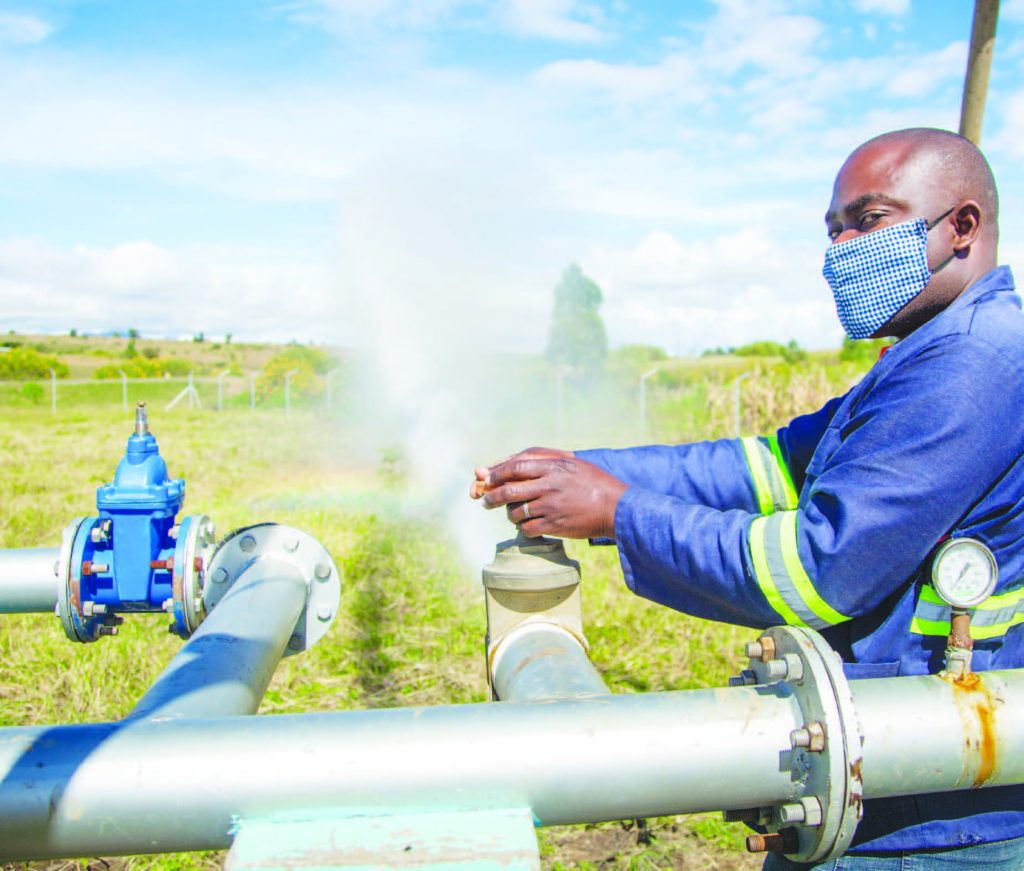No reason to strike for water
For Caroline Malunga, safe water, sanitation and hygiene are pivotal to keeping children in schools.
The 18-year-old girl is in Form Four at Umbwi Secondary School in Dedza. In 2019, the learners marched to the Central Region Water Board (CRWB) to demand improved water supply.

“We learn that clean water is important for our health, but we were enduring a week without water coming out of our taps. So I was totally in agreement with the march for better water supply,” she explains.
Clad in a clean uniform, Caroline no longer worries about long travels in search of water. Together with her schoolmates, she has stopped crossing M1, the country’s largest road, to source water from congested hand pumps in villages surrounding her school.
Currently, CRWB keeps the school supplied nearly every day.
“When we want to bath, wash clothes or mop classrooms, hostels and toilets, we don’t complain because we have water on campus. This has reduced the likelihood of preventable disease outbreaks, so we can spend more time learning and studying, not bedridden,” she states.
Enhanced water supply has propped up the school’s fight against the Covid-19 pandemic, which is prevented by frequently washing hands with soap and decontaminating frequently-touched surfaces.
Caroline says she washes her hands twice an hour to remove germs, including coronavirus.
“Had the pandemic occurred two years ago when the march was held, it wouldn’t have been easy to stay safe. Now it is easy to protect myself, my classmates and everyone around me,” she says when asked about the fast-spreading virus that led to a six-month school closure in 2020 and a five-week break this year.
CRWB constructed the groundwater pumps with funding from the World Bank to beat water stress worsened by persistent drought and massive siltation.
Amid falling water volumes from low-yielding boreholes and dams in Dedza Mountain, the high-yielding pumps in Dedza have stepped up water supply for the rising population in the shadow of Malawi’s third-largest mountain.
This has dramatically reduced the hours 618 learners at Umbwi Secondary School lived without water and Caroline is excited that water supply in her border town keeps improving.
She urges the utility to rapidly fix pipe bursts and other faults for its customers to fully benefit from the drought-resilient water supply system.
“When taps stop running these days, it’s a fault,” says Caroline, who aspires to study tourism and hotel management at Mzuzu University.
Headteacher Bernard Bowa says the solar-powered water supply system has made teaching and learning safer.
He narrates: “Water is critical for schools, but it was scarce when I arrived in Dedza two years ago.
“Teachers and learners had to cross the busy road to fetch water from congested boreholes and streams. Not any longer. The situation has greatly improved lately.”
Just like that, the learners can use flush toilets and kitchens, which were potential spreaders of waterborne diseases during the water crisis.
“The students’ demonstration was a desperate call for improved water supply. Now there is no reason to hold protests because we have what we wanted. Our relationship with the water board has improved,” he says.
Bowa has been teaching since 1987. He says students are no longer haunted by a disease that kept them stuck to sickbeds instead of learning.
Apart from Dedza, CRWB has also installed two high-yielding boreholes in Ntcheu district, one in Ntchisi district and another in the lakeshore district of Salima district.
Bankum Malunga, Zone Manager for Dedza and Ntcheu districts, says the deep boreholes have greatly improved water supply and revenue in the two districts.
He explains: “Previously, the two districts were experiencing water scarcity. We could only give our customers in Dedza water for half a day, but they now have water throughout the day, every day.
With the project, we have also reduced the gap to just four hours in Ntcheu district. If we close the gap, we will be happy because water is life.”
One of the new pumps in Dedza district produces 13 litres per second and the other 4.5 litres. They are powered by solar panels that produce 63-kilowatt from sunlight, keeping customers supplied despite blackouts haunting the national grid.
“It’s a huge difference for CRWB and our customers, who were dissatisfied. The strikes have disappeared,” he says.
“We try hard to maintain good relations with every client. We record all complaints and act swiftly, so we are happy. With the new water source, we can connect more people and keep them happy while generating more revenue for other investments in water for all.”





